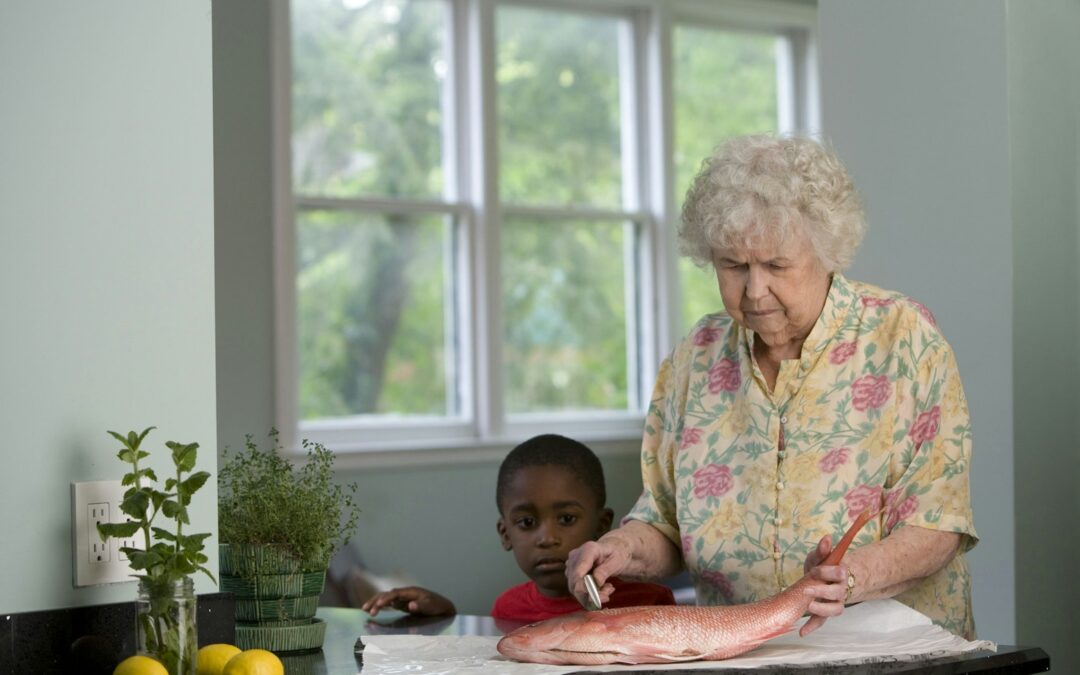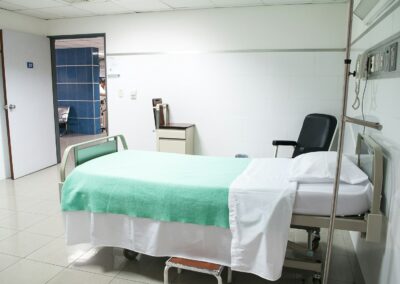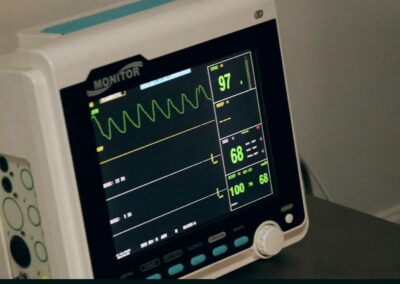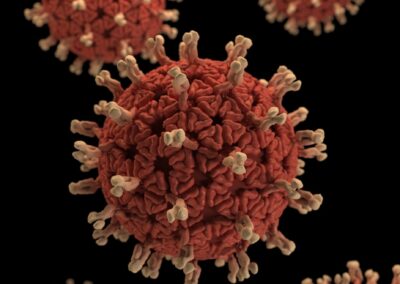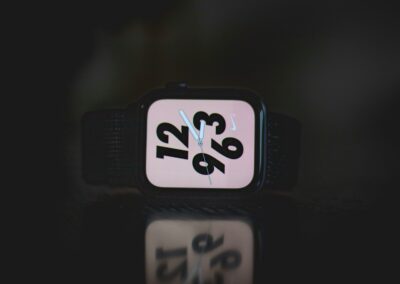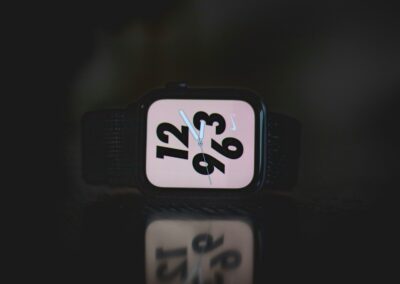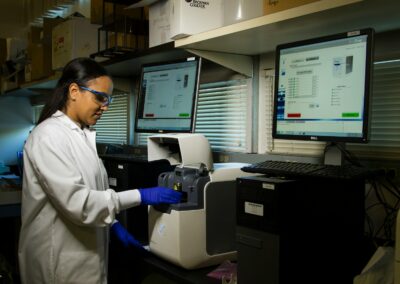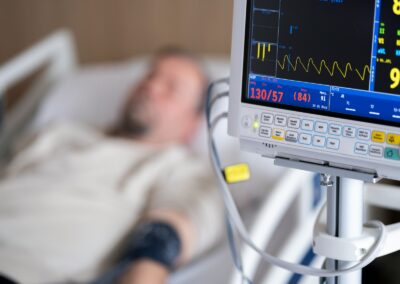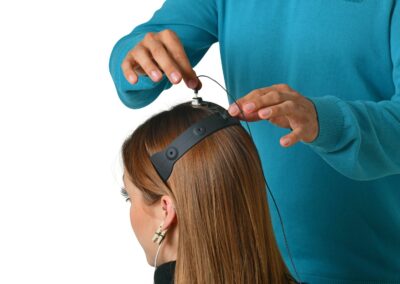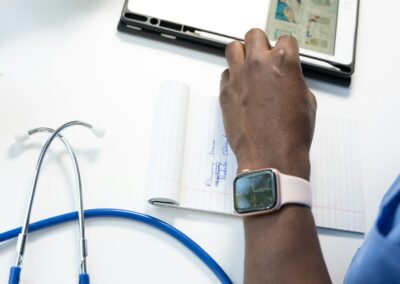Harnessing Digital Twins for Elderly Care
The Emergence of Digital Twins in Healthcare
The use of digital twins for elderly health monitoring represents a transformative shift in healthcare, offering innovative solutions to support aging in place. Digital twins are highly detailed virtual replicas of physical entities, in this case, individual patients. By integrating real-time data from various sources, such as wearable devices and electronic health records, digital twins provide a comprehensive view of an elderly person’s health status.
In regions like Saudi Arabia and the UAE, known for their advanced healthcare infrastructures, the implementation of digital twin technology is enhancing the quality of care for the elderly. These regions are at the forefront of adopting modern technologies to address the challenges associated with aging populations. Digital twins allow for continuous monitoring, predictive analytics, and personalized healthcare, which are crucial for managing chronic conditions and improving overall well-being.
The primary advantage of digital twins lies in their ability to simulate different health scenarios, predict potential health issues, and enable proactive interventions. For elderly individuals, this means better management of diseases, fewer hospital visits, and a higher quality of life. By leveraging digital twin technology, healthcare providers in Riyadh and Dubai are setting new standards in elderly care, ensuring that aging in place is safe, efficient, and effective.
Case Studies: Success Stories from Saudi Arabia and the UAE
Case studies from Saudi Arabia and the UAE demonstrate the significant impact of digital twins on elderly health monitoring. In Riyadh, a pilot project involving digital twins for elderly patients with diabetes showed remarkable improvements in disease management. The digital twins continuously monitored glucose levels, physical activity, and dietary habits, allowing healthcare providers to offer personalized advice and adjust treatment plans in real time. This proactive approach resulted in better glycemic control and reduced complications.
Similarly, in Dubai, a digital twin initiative for monitoring cardiovascular health among the elderly has yielded positive outcomes. The digital twins integrated data from wearable devices, capturing metrics such as heart rate, blood pressure, and physical activity levels. By analyzing this data, healthcare professionals could identify early signs of cardiac issues and intervene before they escalated. The project not only improved patient outcomes but also reduced the burden on emergency services and hospital admissions.
These case studies highlight the effectiveness of digital twins in providing comprehensive, personalized care for the elderly. The lessons learned from these initiatives underscore the importance of continuous monitoring, real-time data integration, and predictive analytics in enhancing elderly care. By adopting digital twin technology, Saudi Arabia and the UAE are leading the way in innovative healthcare solutions, ensuring that their aging populations receive the best possible care.
Challenges and Future Directions
While the benefits of digital twins in elderly health monitoring are clear, there are challenges that need to be addressed to maximize their potential. One significant challenge is data privacy and security. Ensuring that sensitive health data is protected and used ethically is paramount. Governments and healthcare providers in Saudi Arabia and the UAE are investing in robust cybersecurity measures to safeguard patient data and build trust in digital health solutions.
Another challenge is the integration of digital twins into existing healthcare systems. This requires substantial investment in technology infrastructure, training for healthcare professionals, and collaboration between various stakeholders. Despite these challenges, the potential benefits of digital twins in elderly care make them a worthwhile investment. The ongoing efforts to overcome these obstacles demonstrate a commitment to advancing healthcare and improving the lives of elderly individuals.
Looking ahead, the future of digital twins in elderly health monitoring is promising. As technology continues to evolve, digital twins will become more sophisticated, incorporating advanced artificial intelligence and machine learning algorithms. This will enhance their predictive capabilities and enable even more personalized and effective healthcare interventions. Additionally, expanding the use of digital twins to other areas of healthcare, such as mental health and rehabilitation, will further improve the quality of care for elderly individuals.
Conclusion: Revolutionizing Elderly Care with Digital Twins
In conclusion, the implementation of digital twins for elderly health monitoring is revolutionizing the way healthcare is delivered to aging populations. By providing detailed virtual representations of patients’ health, digital twins enable continuous monitoring, predictive analytics, and personalized care. The success stories from Saudi Arabia and the UAE illustrate the significant impact of this technology on improving elderly care and supporting aging in place.
Despite the challenges, the commitment to advancing digital twin technology in healthcare is evident in these regions. With ongoing investments in technology infrastructure and data security, Saudi Arabia and the UAE are setting new standards in elderly care. As digital twin technology continues to evolve, it will play an increasingly important role in personalized medicine, ensuring that elderly individuals receive the best possible care.
By embracing these advancements and overcoming existing challenges, healthcare providers can leverage digital twins to pioneer the future of elderly care, delivering superior patient outcomes and enhancing the quality of life for elderly individuals.
—
#DigitalTwins, #ElderlyHealthMonitoring, #AgingInPlace, #HealthcareTechnology, #SaudiArabia, #UAE, #Riyadh, #Dubai, #ArtificialIntelligence, #ModernTechnology, #BusinessSuccess, #Leadership, #ProjectManagement

